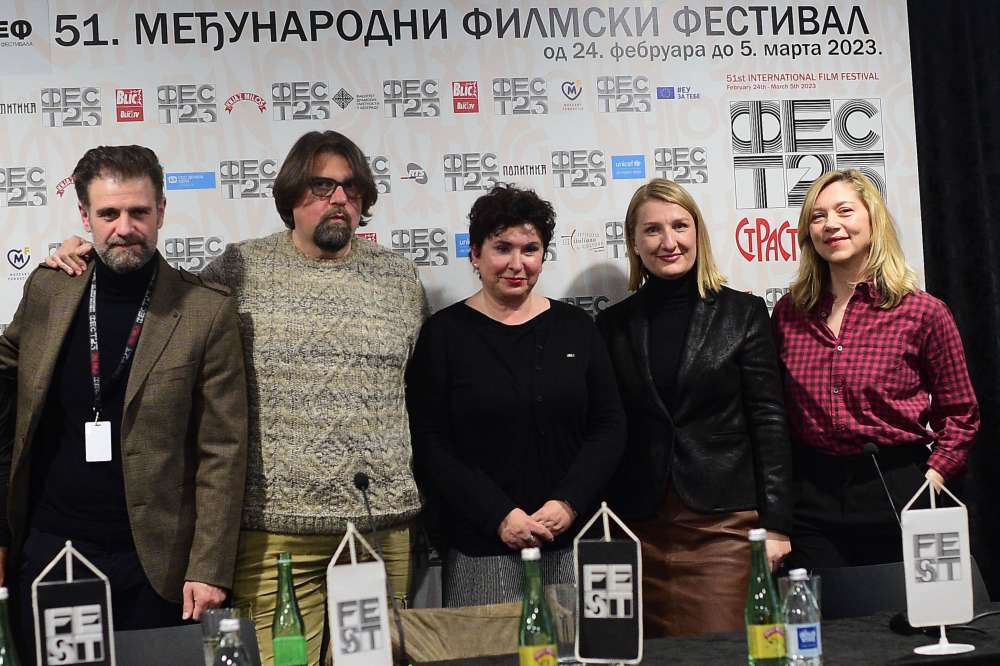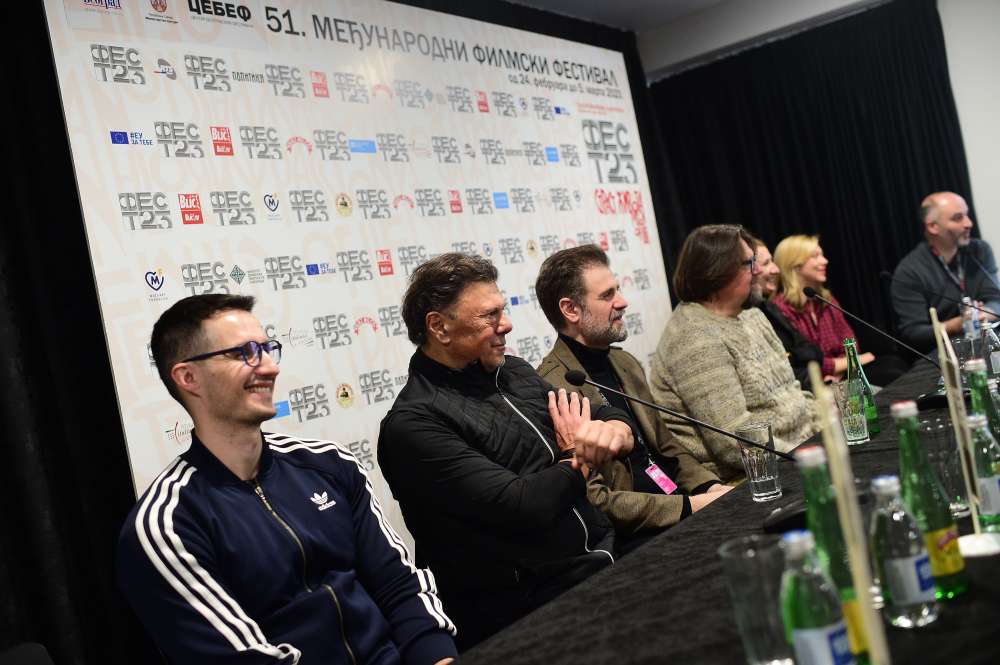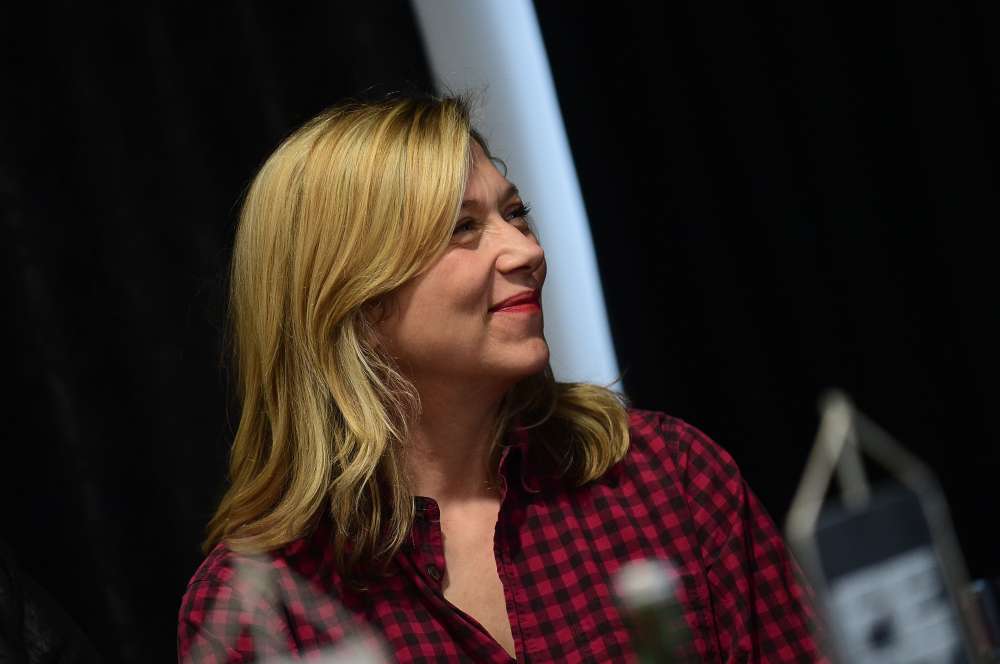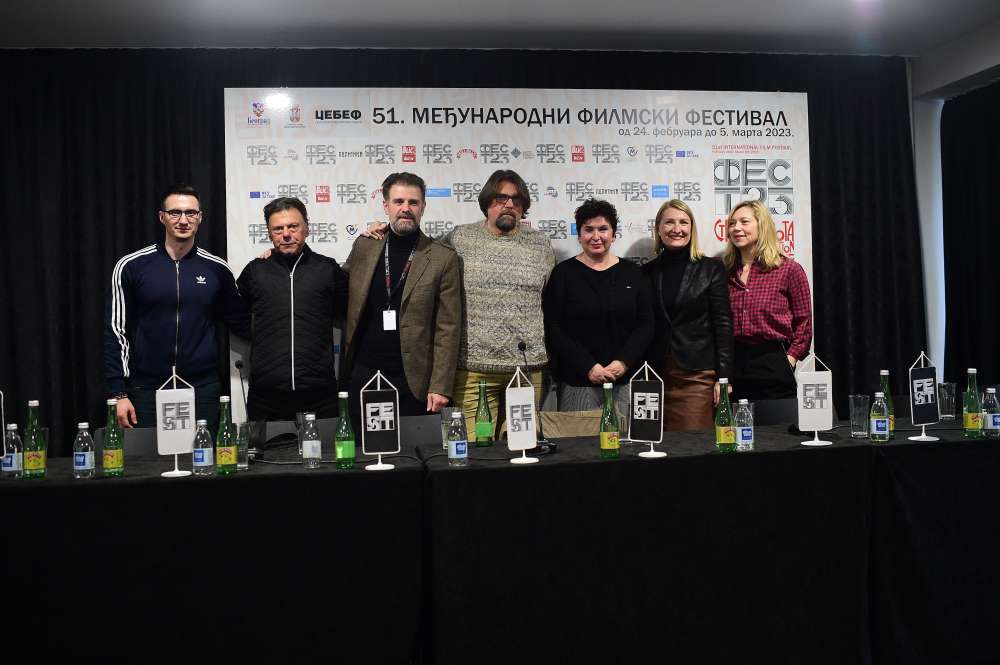Director Pjer Žalica and his collaborators presented the feature film ‘May Labor Day’ (Praznik rada) to the FEST journalists. The film is a co-production of Bosnia and Herzegovina, Croatia, North Macedonia, Serbia and Montenegro, and after the premiere on Tuesday, it will be shown on 1 March in the Great Hall of MTS Hall, as well as on 2 March in the Cineplexx Ušće cinema.
Director and screenwriter Pjer Žalica, actors Muhamed Hadžović, Jasna Žalica, Branka Katić, Dženita Imanović Omerović, Vedran Đekić, as well as Antonije Žalica, assistant director, collaborator on the screenplay and author of the song ‘Bjelovska’, spoke about the film.
‘I tried very hard to make a comedy, and I made a tragedy that tries very hard to be a comedy, and it fails. Our life is like that and it will be like that for a long time. I do not know if I will ever live to see the world change for the better. But that does not mean we cannot make films about it, we have a good sense of humor no matter what’, said Žalica and added:
‘Our problem is unhealed wounds, but we are mistaking the matter as a doctor who, instead of treating a broken arm with a bone sticking out, deals with the spleen... and it is the same at the local and global level’. They have been trying to convince us that we are each other's enemies for 30 years, and that only creates problems for us.’
According to Muhamed Hadžović, who plays the main character who leaves, he, like many young people who run away, leaves and returns.
Actress Jasna Žalica got the role of Muma.
‘The woman I play reminds me the most of an animal that licks its wounds, and then comes out, growls, barks, threatens I do not know whom and why it does it. When she is alone in the four walls, she persistently heals her wounds, and when she goes out, she helps the first person next to her. She's like those apparently bland women, but she's much more serious than she seems at first glance’, she explained to the journalists.
Branka Katić portrays Goga, whom she says is a woman who wants to help everyone, but who is outplayed by fate in the film.
‘I agree with the director that this world could be much better if we stopped killing each other and constantly competing to see who is stronger and better’, adding that she liked working in Sarajevo and would like to have an eraser to erase all the trauma people had experienced.
Pjer Žalica also pointed out that he had developed his characters on paper - and for that there were techniques that he taught to his students in the screenwriting class - to the extent that they had begun to function separately as if they were autonomous and that he would feel as though he was lying if he had tried to do something that would have put them out of their context.
According to the director the film was shot during the time of the corona virus, which, while respecting all measures, hung like a sword over the crew's head, and although he knows that there were some inconveniences during the filming, he cannot remember what specifically was unpleasant.












